Switzerland is home to the Alps and alpine villages, lakeside towns, sweeping valleys, and bustling cities. So start planning your trip, because this Switzerland travel guide has everything you need to know!
Switzerland
When you think of Switzerland, you probably think of chocolate, Swiss army knives, and the famous Grindelwald. But it’s is also renowned for its food, culture, architecture, cleanliness, and public transportation. Switzerland has something for everyone, and this Switzerland travel guide has everything you need for planning a trip!
Ready to plan your trip? Here’s the ultimate Switzerland travel guide!

Top Places to Visit

Typical Costs When Traveling
Exchange Rate
The currency in Switzerland is the Swiss franc (Sfr). Exchange rates are subject to fluctuations, so be sure to check this as your trip approaches. On average, 1 Sfr is equal to about £.83 British Pounds, $1.03 U.S., €,92, and 7.15 Chinese Yuan.
Rail stations and some larger shops, hotels, and restaurants accept Euros. But your change will be in Swiss francs, and the exchange rate won’t be in your favor. So if you’re in Switzerland for more than a day or two, you’ll want to have Swiss francs on hand.
Accommodation
A hostel room will be in the Sfr30–60 a night range (£25-50, $31-62, €28-55, 215-430 Yuan). A budget hotel is around Sfr100 a night (£83, $103, €92, 716 Yuan). A mid-range hotel is about Sfr200 a night (£165, $205, €184, 1433 Yuan). And more luxury accommodations will start at Sfr300 a night (£248, $310, €276, 2150 Yuan) and go up from there.
Airbnb prices average about Sfr90 (£75, $93, €83, 645 Yuan).
Food
Taking yourself out to lunch will be around Sfr25 (£21, $26, €23, 180 Yuan). A dish of the day or fixed two-course menu for dinner will be between Sfr40–70 (£33-58, $41-72, €37-64.50, 287-500 Yuan). A three-course dinner in an upmarket restaurant will start at Sfr100 (£83, $103, €92, 716 Yuan) and go up from there.
Food is relatively expensive in Switzerland, so I’d recommend street food and shopping at grocery stores for some of your meals if you want to save money.
Beers average around Sfr8 a drink (£6.60, $8.50, €7, 57 Yuan). And wine is between Sfr10-25 (£8.25-20.50, $10.50-26, €9-23, 72-179- Yuan). Hostel bars usually have cheaper drinks and drink specials.
Here are the Top 10 Foods To Try In Switzerland!
Transportation
Public transportation within a city’s limits is around Sfr4 for a single trip (£3.30, $4.15, €3,75, 28.50 Yuan) and Sfr8 for a round trip (£6.60, $8.25, €7,50, 57 Yuan). If you’re going to use public transportation frequently within one city, you might want to opt for the multi-day pass (available at regular metro kiosks) to save money.
Transportation between cities can range from Sfr50-100 (£41-83, $51-103, €46-92, 358-716 Yuan) depending on how far you’re traveling, whether you’re going via rail or bus, and what class and amenities you want. Renting a car will be about Sfr15 a day (£12.50, $15.50, €13,50, 107 Yuan), and then you’ll need to pay for tolls, gas, and parking.
Taxis in Switzerland are expensive. The initial charge is around Sfr6.50 (£5.25, $6.75, €6, 46.50 Yuan) plus Sfr3.50 (£2.80, $3.60, €3,25, 25 Yuan) per kilometer. A service charge is included in the fare, so you don’t need to tip.
Uber operates in Zurich, Basel, Geneva, and Lausanne. Lyft doesn’t operate in Switzerland.
Other Expenses
I’d budget around Sfr50 a day (£41, $51.50, €46, 358 Yuan) for entrance fees, tours, guides, snacks, tips, and souvenirs. If you want to do some adventure activities (skiing, skydiving, etc.), then plan on tripling this daily activity budget.
ATMs are at every airport, most metro stations, and on every second street corner in almost every town and city. They accept most international bank cards and have multilingual instructions. Your bank or credit card company will often charge a 1% to 2.5% fee, and there may be a small charge on the ATM end.
Credit cards are usually accepted at hotels, shops, and restaurants. Visa and MasterCard are the most widely accepted cards.
Tipping
Hotels, restaurants, bars, and taxis are legally required to include a 15% service charge. So, as a general rule, you won’t need to tip more. The one exception is that hotel and railway porters expect a franc or two per bag.
Suggested Daily Costs
These budget estimates include eating and drinking out at least once a day and factoring in at least a couple of inter-city train rides. Cooking your meals or having picnics will dramatically reduce your daily costs, but you should have at least one authentic Swiss meal and brew!
Lower End: Sfr180 a day (£150, $185, €165, 1290 Yuan). Midrange: Sfr270 a day (£223, $278, €248, 1934 Yuan). Higher End: Sfr600 a day and up (£495, $617, €553, 4298 Yuan).
MONEY SAVING TIPS
How to Prepare for Switzerland
Vaccinations
The Centers for Disease Control and Prevention (CDC) and World Health Organization (WHO) recommend the following immunizations: tetanus, measles-mumps-rubella (MMR), Hepatitis A, Hepatitis B, rabies and, influenza shots.
Passport Health has additional information on current vaccinations and diseases in Switzerland, and I recommend visiting their website for the most up-to-date travel requirements.
Visas
EU and British nationals will need a valid passport for the length of their stay, but no period of validity is required beyond your trip. EU nations may also enter Switzerland using a valid national identity card instead of a passport. All other nationals should have a passport valid for at least six months past their stay.
Most nationals don’t need visas when visiting Switzerland for less than 90 days. The World Travel Guide has more information on Switzerland’s visa and passport requirements.
iVisa is an incredibly helpful resource for obtaining visas. iVisa makes the usually complicated and confusing process of getting a visa easy by taking care of everything for you. You fill out a simple online application, and then iVisa takes care of everything else.
Etiquette
Shake hands when meeting for the first time and when saying goodbye. When shopping, you should say Grüezi (hello) to the employees when entering and Adieu (goodbye) when leaving.
Being late is considered extremely rude.
Greet fellow hikers on trails with a hello: Grüezi (singular) or Grüezi mitenand (plural).
If you’re toasting, look your toasting partner in the eye when clinking glasses and say Prost (cheers). The Swiss think a lack of eye contact when toasting will bring you bad luck!
Plan Your Trip
When To Go
Switzerland’s high season is July and August when tourists and prices are at their peak. December – March is the high season for ski resorts and snow sports.
Switzerland’s shoulder season is from April – June, and September. There are fewer tourists, lower prices, and moderate temperatures during these months. Spring is the best time to see those iconic Swiss flower fields, and the Fall is when you can see the grape harvests.
The low season is October – March for everywhere in the country that isn’t a ski resort. It’s cold during these months, and most places are open fewer days a week and for shorter hours a day. But travel costs can be up to 50% less during these months.
Because some trails and sites close during the winter months, if you’re thinking about going in the Winter (especially if you don’t want to do snow sports), make sure your top destinations and attractions will be open.
Switzerland is one of the Best Destinations To Visit In June!
What To Pack
In addition to your usual travel essentials, you’ll want these items in Switzerland:
Day pack, water bottle, and hiking shoes since you’ll probably be doing at least one hike. If you’re doing any treks, make sure you have any specialized clothing or equipment you might need.
Electrical outlets in Switzerland are Types C and J. So if you’re from the EU, you won’t need an outlet adaptor. But British, U.S., and other travelers will need an adaptor.
Rain jacket because there’s always a chance of rain. If you’re here in the winter months, you’ll want several warm layers and a waterproof outer layer for rain, sleet, or snow.
But even if you’re here in the Summer months, you’ll want a lightweight fleece, sweater, or mid-weight jacket. It gets cool all year round in the mornings and evenings in the higher elevations.
What To Wear
A professional personal appearance is important to the Swiss. So, to dress like the locals, pack practical dressy-casual clothes. Long or capri pants, skirts, and dresses for women and long pants for men. You won’t see locals wearing shorts unless they’re about to jump in a lake.
Now, you can wear athletic gear, white tennis shoes, or graphic tees, but your appearance will single you out as a tourist. I’ve found that when traveling, it’s usually better to blend. It’s also respectful to dress more as the locals would.
It’s smart to have a layer on hand when you’re visiting churches or other religious sites to cover your shoulders out of respect.
Bring your most comfortable shoes! You’ll be walking A LOT, and you’ll spend a lot of time on trails and cobblestone sidewalks or streets.
Have you been to Switzerland? Comment below with anything you’d add to this Switzerland travel guide!

Shop My Switzerland Essentials

Frequently Asked Questions
How much should I budget for a trip to Switzerland?
Expected daily costs for visiting Switzerland, plus airfare:
Lower End: Sfr180 a day ($185).
Midrange: Sfr270 a day ($280).
Higher End: Sfr600 a day and up ($620).
What is the best month to go to Switzerland?
Switzerland’s high season is July and August when tourists and prices are at their peak. December – March is the high season for ski resorts and snow sports.
Switzerland’s shoulder season is from April – June, and September. There are fewer tourists, lower prices, and moderate temperatures during these months. Spring is the best time to see those iconic Swiss flower fields, and the Fall is when you can see the grape harvests.
The low season is October – March for everywhere in the country that isn’t a ski resort. It’s cold during these months, and most places are open fewer days a week and for shorter hours a day. But travel costs can be up to 50% less during these months.
Because some trails and sites close during the winter months, if you’re thinking about going in the Winter (especially if you don’t want to do snow sports), make sure your top destinations and attractions will be open.
What do I need to know before traveling to Switzerland?
Know Before You Go To Switzerland:
1. The currency in Switzerland is the Swiss franc (Sfr). Exchange rates are subject to fluctuations, so be sure to check this as your trip approaches. On average, 1 Sfr equals about £.83 British Pounds, $1.03 U.S., €,92, and 7.15 Chinese Yuan.
2. Hotels, restaurants, bars, and taxis are legally required to include a 15% service charge. So, as a general rule, you won’t need to tip more. The one exception is that hotel and railway porters expect a franc or two per bag.
3. BlaBlaCar can be a more affordable alternative to intercity trains. But BlaBlaCar doesn’t run as promptly as the Swiss train system. So, only consider BlaBlaCar if you have a flexible travel schedule.
4. Electrical outlets in Switzerland are Types C and J. So if you’re from the EU, you won’t need an outlet adaptor. But British, U.S., and other travelers will need an adaptor.
5. A professional personal appearance is important to the Swiss. So, to dress like the locals, pack practical dressy-casual clothes – long or capri pants, skirts, and dresses for women and long pants for men. You won’t see locals wearing shorts unless they’re about to jump in a lake.
How many days are enough for Switzerland?
If you want to visit multiple cities and regions in Switzerland, you’ll want at least 10-14 days. This will give you enough time to explore a couple of different regions by train or car at a relaxed and enjoyable pace.
What is the rainiest month in Switzerland?
Switzerland has more rain in June than any other month. Rainfall for June averages about five inches, and rain is possible every day.
What should I avoid in Switzerland?
Common mistakes you can make in Switzerland:
1. Leaving your bag unattended or having your wallet in an unsecured pocket. Pickpockets are common in all of Switzerland’s cities.
2. Hotels, restaurants, bars, and taxis are legally required to include a 15% service charge. So don’t double-tip.
3. BlaBlaCar can be a more affordable alternative to intercity trains. But BlaBlaCar doesn’t run as promptly as the Swiss train system. So, only consider BlaBlaCar if you have a flexible travel schedule.
4. Don’t be late. This is considered extremely rude.
5. If you’re making a toast, look your toasting partner in the eye when clinking glasses and say Prost (cheers). The Swiss think a lack of eye contact when toasting will bring you bad luck!
Is Switzerland expensive to travel?
Switzerland is the most expensive country to visit, so here are some budget tips to make your trip more affordable:
1. Visit Zurich and Geneva as day trips.
2. Use travel points for your flights and/or hotel.
3. Buy train tickets in advance.
4. Eat out for lunch instead of dinner.
5. Drink local beer and wine.
6. Do free outdoor activities.
7. Don’t eat near famous sites or landmarks.
8. Use BlaBlaCar instead of trains.
Do people speak English in Switzerland?
About 45% of the Swiss population speaks English. It’s rude to assume Swiss people speak English. Before asking a question of a local, ask if they speak English instead of just assuming that they do.

This Switzerland travel guide is not a sponsored post, and, as always, the thoughts and opinions expressed in this Switzerland travel guide are entirely my own. Some of the links in this Switzerland travel guide are affiliate links, and, at no cost to you, I may earn a small commission.
February 2, 2020
 Travel Shop
Travel Shop Merch
Merch Travel Tips
Travel Tips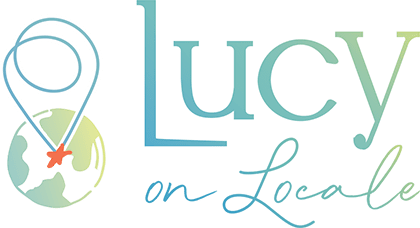
 Photography
Photography Points & Miles
Points & Miles Credit Cards
Credit Cards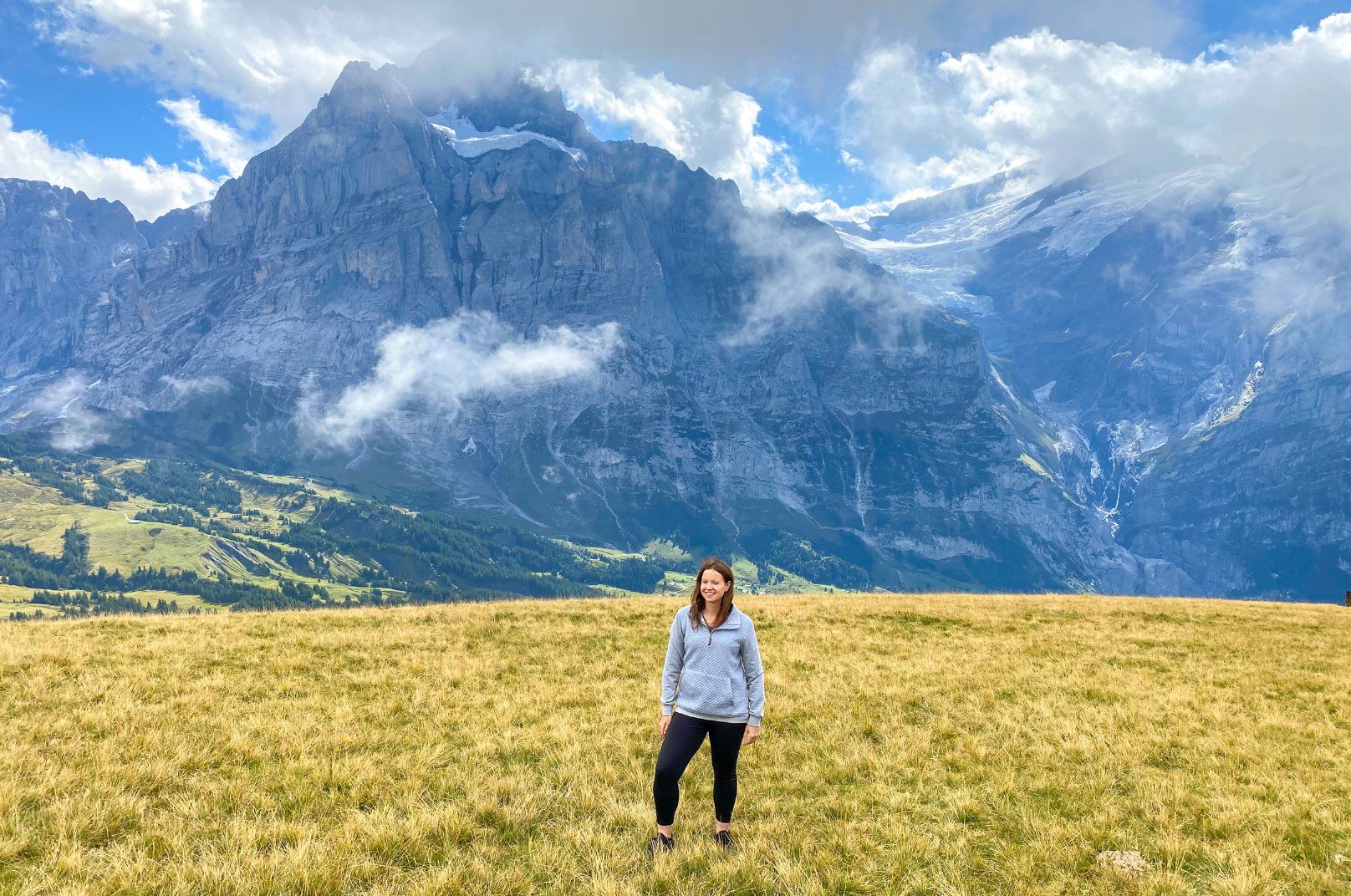
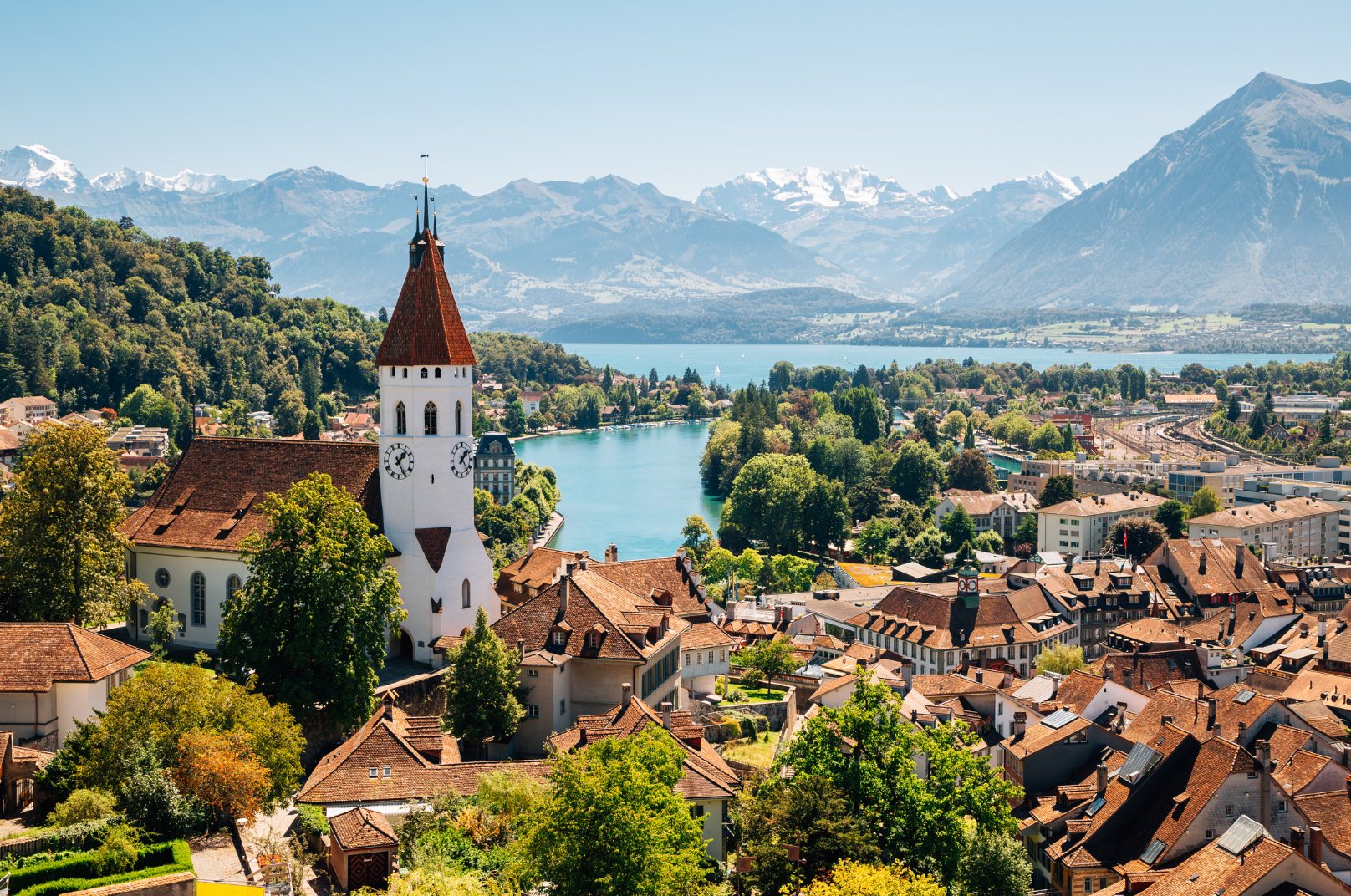


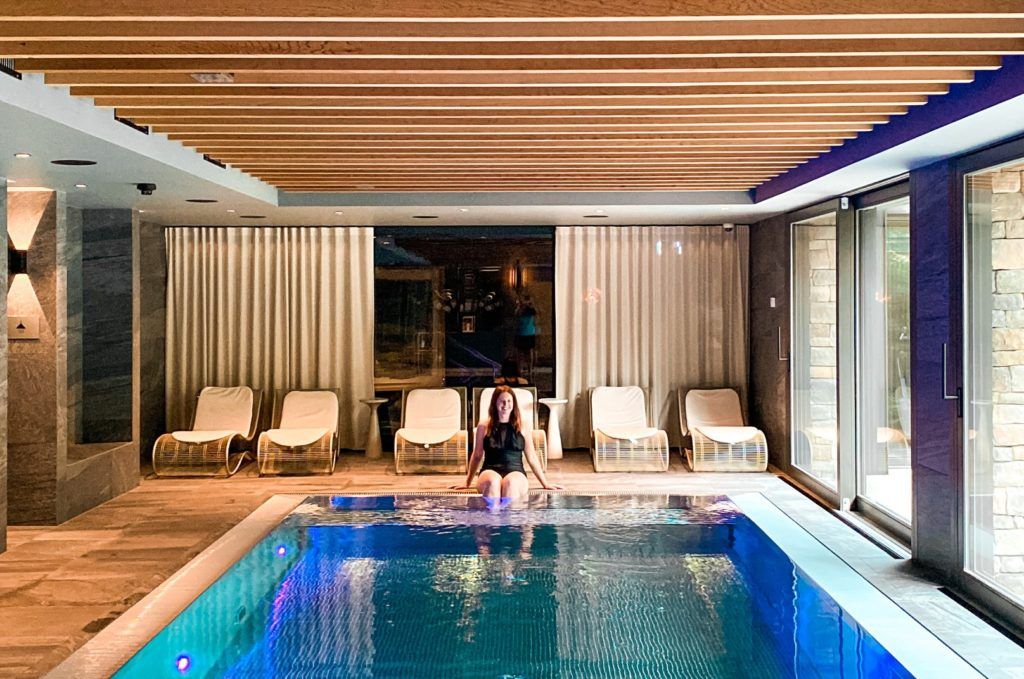

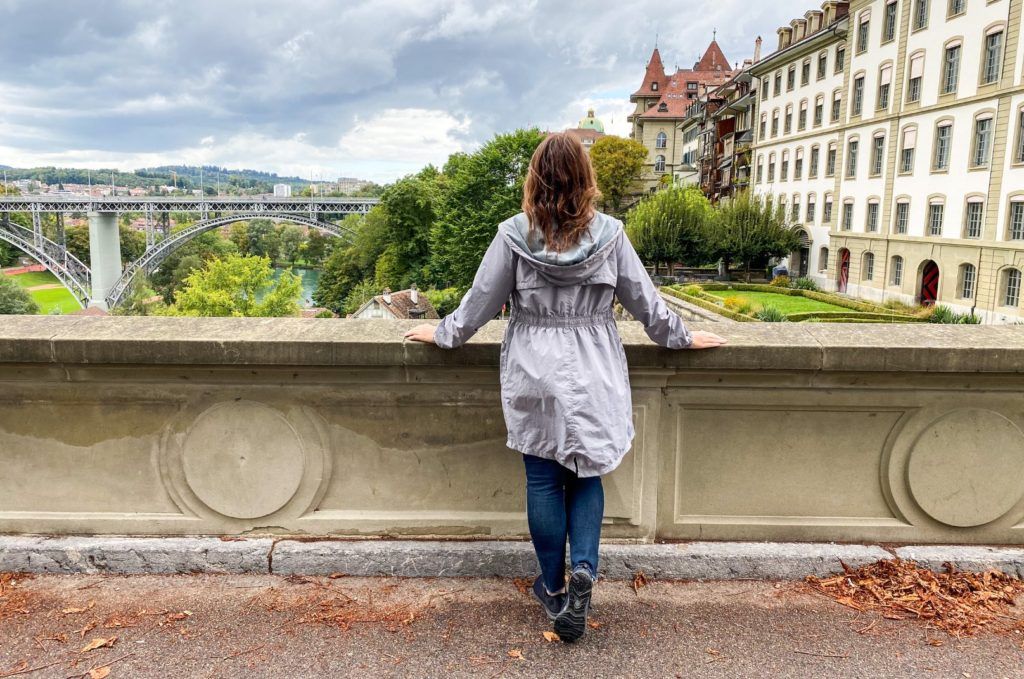
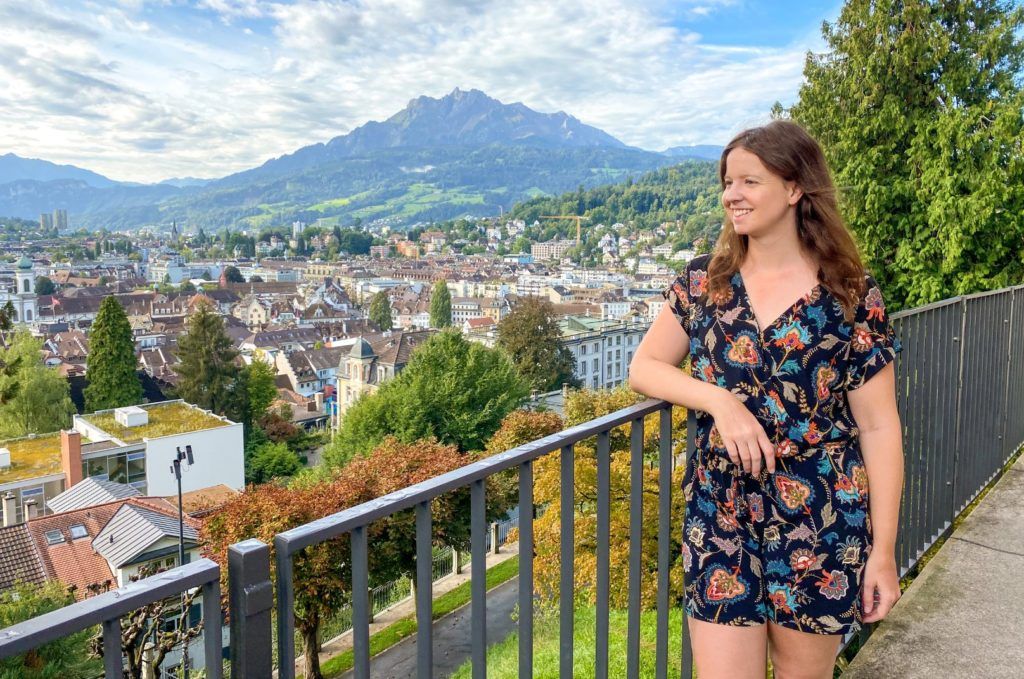

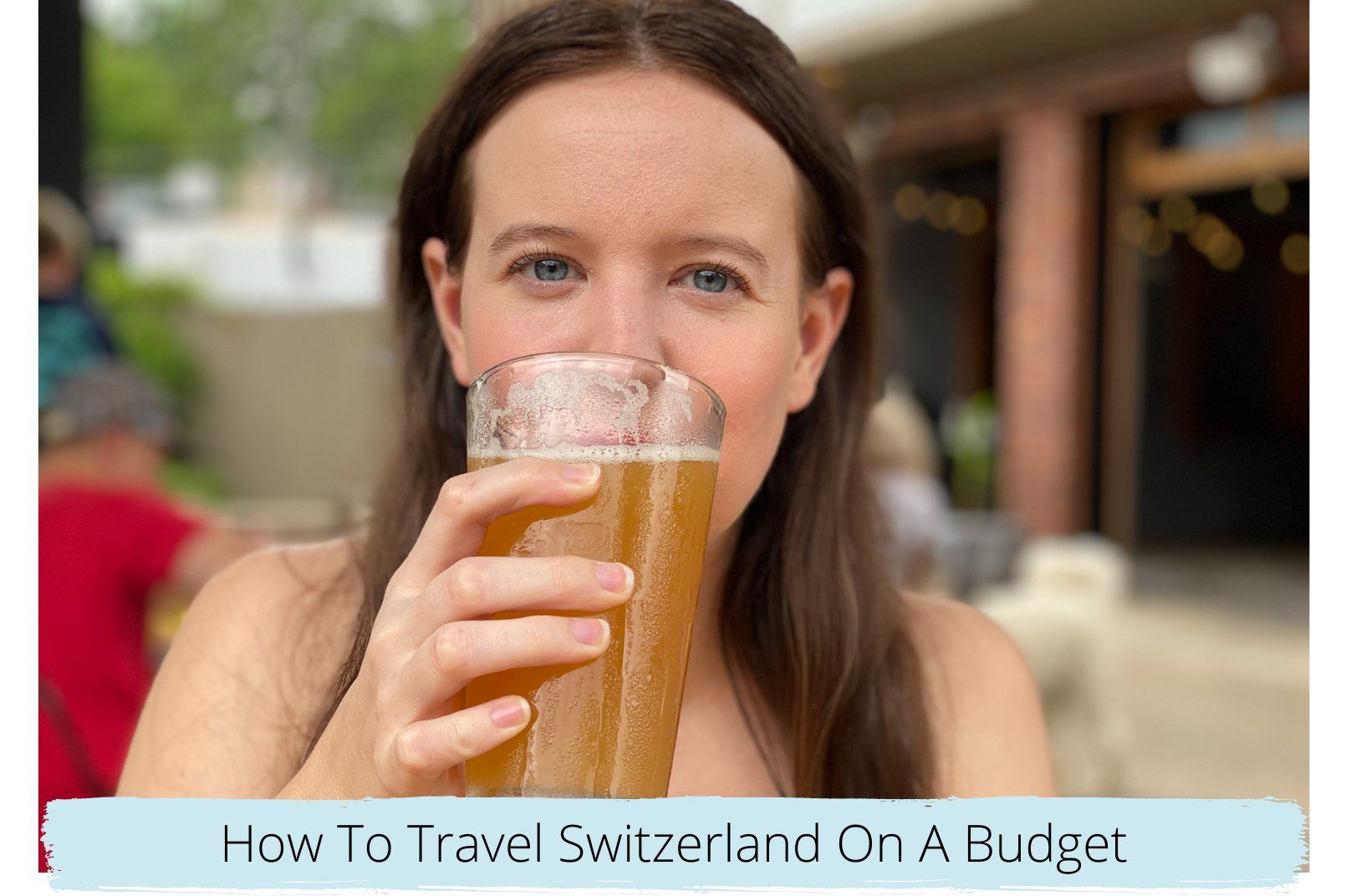
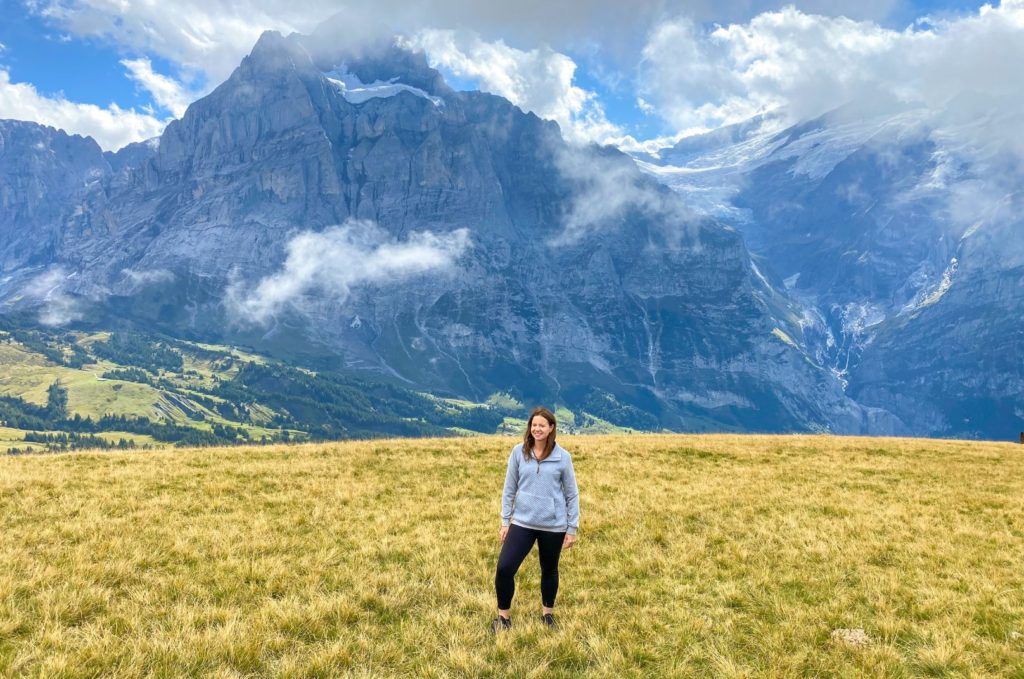
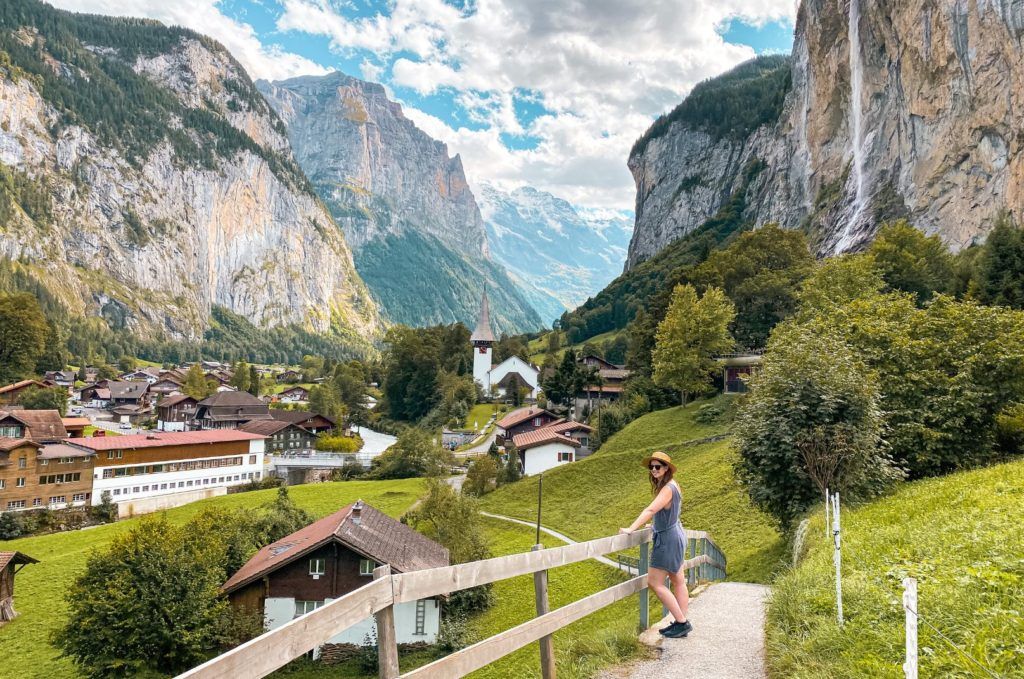





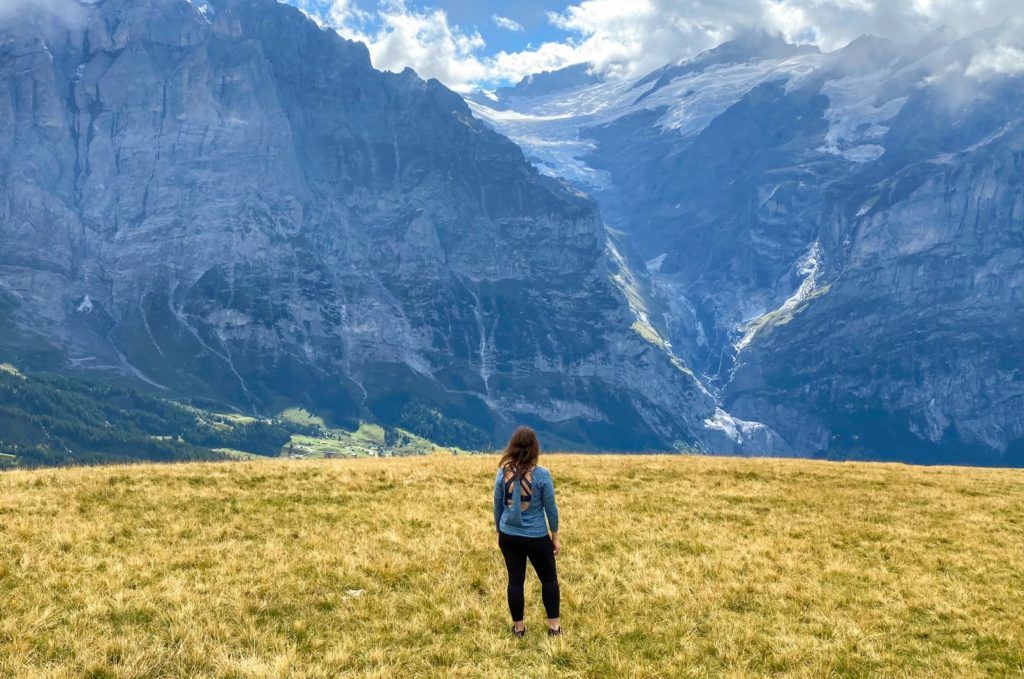
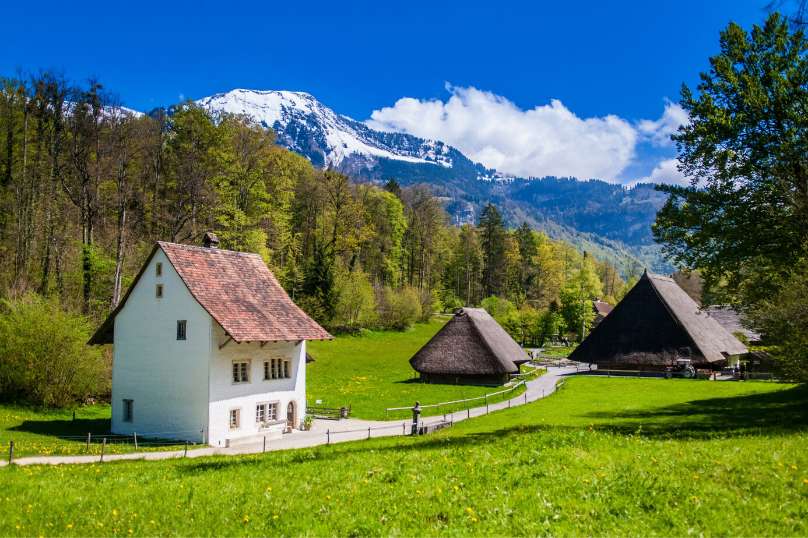
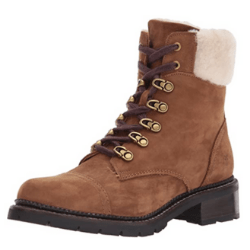
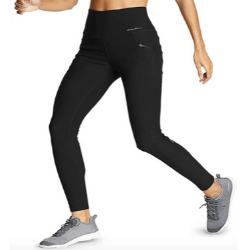
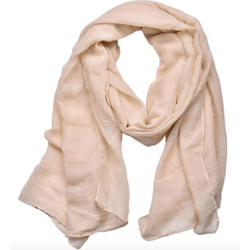


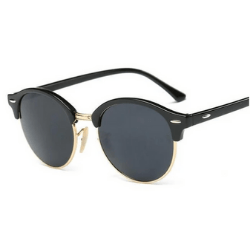

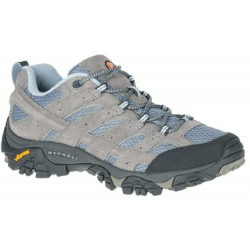

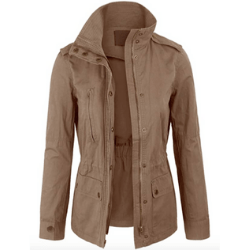
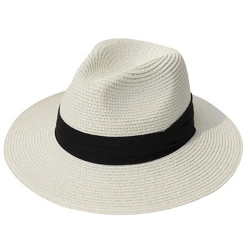

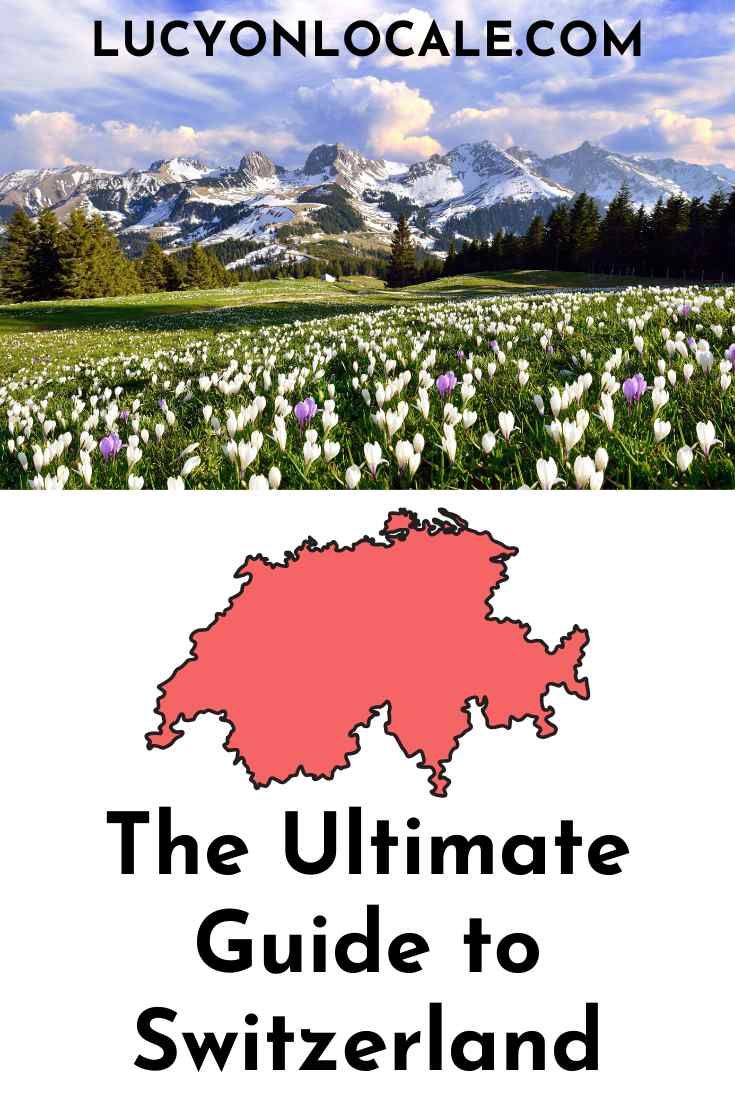


Farrah
Switzerland is definitely on my to-revisit list! I went once back when I was in 8th grade and was only there for maybe…1.5 days, so I need to go back! <3 Thanks for putting together this guide! :]
Lucy On Locale
I’m so glad my guide can help you plan your trip back here! It’s a fantastic country that you’ll love revisiting!
pranita deshpande
I think we have read about heaven .That heaven is this place.
Stephanie
Hi Lucy, you have put together a good guide. Switzerland traveling is always fascinating among the tourists. And the fun will twice by preparing the travel plan following this guide.
Lucy On Locale
I’m so glad my guide has been helpful for you, and send me an email if you have any questions!